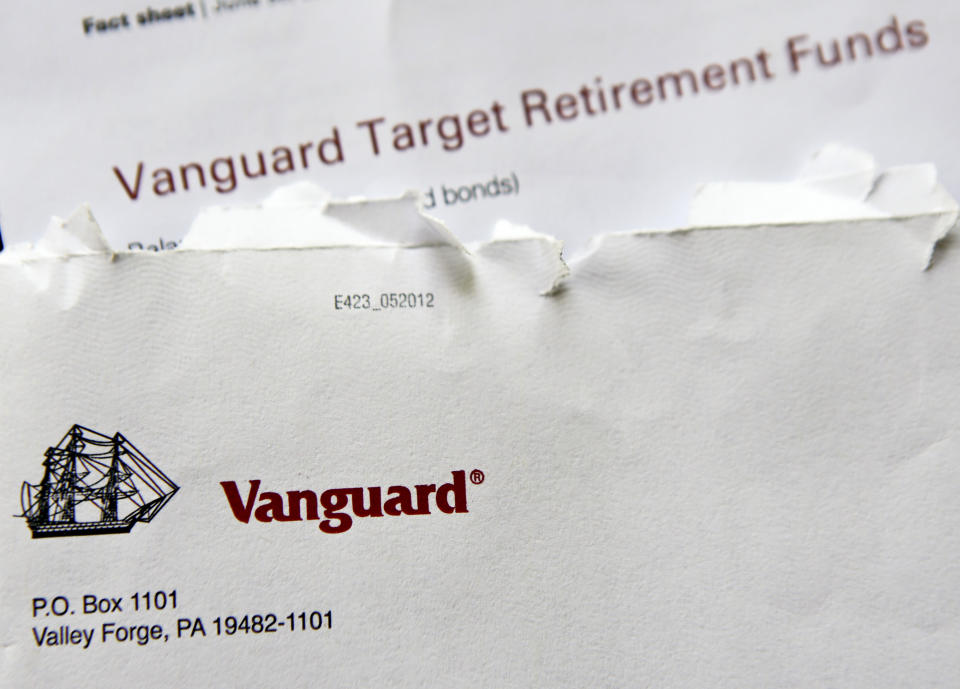Vanguard and Fidelity investors didn't flinch as the market tanked
As the stock market fell a whopping 30% from its February highs, regular retail investors largely followed the advice that most financial advisers give, including the giants Fidelity, T. Rowe Price, Vanguard: stay the course.
Time and time again, fearful investors who pull out of the market when the going gets tough end up committing the cardinal sin of investing: buying high and selling low. Most people seemed to get this, even going as far as making Warren Buffett-like moves, being “greedy while others are being fearful,” the Oracle of Omaha’s old recipe for success.
“During the last week of February and the first week of March, the majority of households trading moved money into equities rather than into fixed income (bonds and cash),” Vanguard’s Amy Lash told Yahoo Finance at the time. “More than 7 in 10 households trading moved into equities.”
That’s even more bullish than staying the course. For long-term investors saving for retirement, in it for the long haul with their 401(k) and IRA accounts, staying the course – not selling your stocks or funds when the markets go haywire – seems obvious. There’s a long time for the market to bounce back — and for many people who put more money in, it means you can buy buy the S&P 500 (let’s assume they’re buying index funds) at a discount.

But since March, things have gotten worse. The economy has taken a nosedive, with unemployment so deep that the graph looks as if there’s been a series of typos. But it’s as real as the 51,000 deaths the U.S. has seen from coronavirus — likely an undercount.
And staying the course seems to have gotten more difficult.
New data from Fidelity on Friday showed 401(k) trends and observations for the first quarter. Balances were down 19% on average — less than the broad market, but still a big hit.
Of Fidelity 401(k) investors, 164,950 of them took a distribution, which the CARES Act legislation allows without the typical penalty for touching the 401(k) before retirement age. But with account balances down 19% on average, that’s still a penalty.
The asset manager, which holds $8.3 trillion in customer assets, was keen to note that this isn’t a large percentage — just 0.7%. While it’s head turning that 3,256 people took out $100,000, the median amount was just $5,500.
For now at least, most regular folks are continuing to stay invested, or even doubling down.
Many of Fidelity’s retirement savers continued to contribute steadily with an average contribution of 8.9%, and 15% of savers even upped their contributions. Just 3% of 401(k) participants stopped buying stocks with their contributions.

This is what Vanguard is reporting as well.
Vanguard told Yahoo Finance that its clients have “overwhelmingly stayed the course,” with just 10.7% of U.S. households trading between Feb. 19 and April 17.
“Of those trading, 44% made only one trade during this period,” said Vanguard’s Felicia Melvin. And only 17% of people who made a trade made more than six.
Again, very few people stopped investing in equities: 0.6% of investors moved into an all-cash position while two-thirds of households moved into equities, though cash-wise more money flowed into fixed income. In other words, wealthier households moved away from the market, something that corresponds with being older and having contributed for longer.
Two other interesting observations from Vanguard: women are better at staying the course than men. For households that have an investor using Vanguard’s platforms, men trade twice as much as women. Age-wise, 6.6% of Gen Z traded, while 15.3% of early boomers traded.
—
Ethan Wolff-Mann is a writer at Yahoo Finance focusing on consumer issues, personal finance, retail, airlines, and more. Follow him on Twitter @ewolffmann.
5 key ways healthcare could change post-coronavirus: analysts
Here's a list of CEOs taking pay cuts amid the coronavirus crisis
Coronavirus: Food delivery is 300 times more popular vs. a month ago, according to Yelp data
Follow Yahoo Finance on Twitter, Facebook, Instagram, Flipboard, LinkedIn, and YouTube.

 money
money 